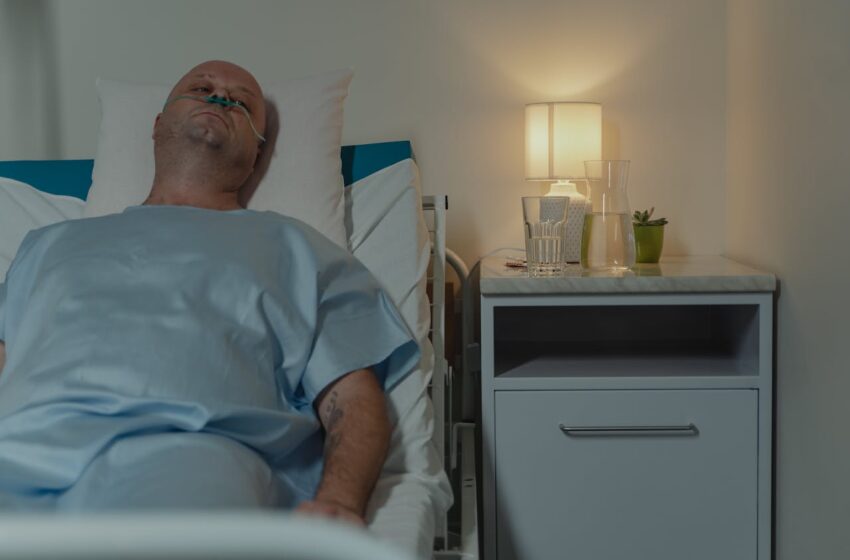Everything you need to know about the UK assisted dying bill

Photo by Tima Miroshnichenko: https://www.pexels.com/photo/sick-man-lying-on-hospital-bed-6010794/
In June 2025, Parliament took a historic step toward changing how the UK handles end-of-life care. The Assisted Dying Bill—officially titled the Terminally Ill Adults (End of Life) Bill—has passed through the House of Commons and is now under review in the House of Lords. The bill seeks to legalise assisted dying for terminally ill adults in England and Wales, under strict medical and legal safeguards.
But what exactly does this legislation mean? Who qualifies? And why is it stirring such intense national debate? Here’s everything you need to know.
What Is the Assisted Dying Bill?
The Assisted Dying Bill was introduced as a private member’s bill by Labour MP Kim Leadbeater in October 2024. Its core aim is to allow mentally competent adults who are terminally ill with less than six months to live to choose a medically assisted death. The idea is to provide those in extreme suffering with a compassionate, legally regulated option to end their lives on their terms.
After months of debate, the bill passed in the House of Commons on 20 June 2025 with a narrow but decisive majority. The next stage is a review in the House of Lords, where further amendments may be proposed before it can receive Royal Assent and become law.
Who Would Be Eligible?
To be eligible under the bill, a person must be at least 18 years old and have been living in England or Wales for at least 12 months. Most importantly, they must be diagnosed with a terminal illness and have a life expectancy of six months or less.
Mental competence is a key requirement. Patients must be able to make informed decisions and demonstrate that their wish to end their life is voluntary and sustained. They must make two formal declarations—one written and one verbal—separated by at least a week, and both must be witnessed.
Assessments must be carried out by two independent doctors, including at least one palliative care specialist. The patient must then be reviewed by a multi-disciplinary panel that includes medical, legal, and social care professionals. These layers of oversight are designed to ensure that the choice is freely made, fully informed, and not influenced by external pressure.
What Safeguards Are in Place?
Supporters of the bill have emphasised the robust framework of safeguards built into the legislation. For one, no medical professional is required to participate in assisted dying if they object—there are clear conscience protections in place. At the same time, anyone found to be coercing a patient or falsifying documentation could face up to 14 years in prison.
A new, independent body—the Voluntary Assisted Dying Commissioner—would be established to oversee all cases. This commissioner would be responsible for maintaining transparency, investigating concerns, and publishing annual reports.
In addition, the bill includes a ban on advertising assisted dying services. This ensures that the system remains patient-led rather than commercially driven or externally promoted.
Why Is It Being Proposed?
Proponents of the bill argue that the current system leaves too many people suffering needlessly at the end of life. As it stands, assisting someone in suicide is a criminal offence under the Suicide Act 1961. As a result, some patients choose to travel abroad, often to countries like Switzerland, to access assisted dying services—an emotionally and financially difficult decision for many families.
The Assisted Dying Bill seeks to bring that option home under a carefully controlled, compassionate system. The goal is to give patients more control over their final days, avoid prolonged suffering, and allow people to say goodbye on their terms.
Read also: Catholic priest in UK denies communion to MP over assisted dying vote
What Are People Saying?
Public opinion appears to be strongly in favour. Polls suggest that around 70% of people in the UK support legalising assisted dying for terminally ill adults. Major advocacy groups like Dignity in Dying have long pushed for reform, highlighting stories of individuals forced to endure unbearable pain or travel abroad to take control of their deaths.
However, the bill is not without opposition. Some disability rights groups, religious organisations, and medical professionals have raised concerns about potential risks to vulnerable people. They argue that no system can fully guarantee against subtle forms of pressure or coercion, particularly for elderly or disabled individuals who may feel like a burden on loved ones or the healthcare system.
Others worry that legalising assisted dying could lead to cuts in investment in palliative care or shift cultural attitudes toward death and disability. Some critics have also pointed out that the bill no longer includes a formal role for the judiciary after this safeguard was dropped during the Commons debates.
What Happens Next?
With the bill now under review in the House of Lords, it could still face changes before becoming law. Peers may suggest amendments to strengthen safeguards or address concerns raised during the Commons debates. If passed by the Lords, it would require Royal Assent and would then be implemented in stages across England and Wales.
The government has said that any rollout of assisted dying services would be accompanied by new professional training, public education, and the development of clear codes of practice for healthcare workers. Full implementation could take up to four years.
A Turning Point in End-of-Life Care?
Whether or not you support the bill, there’s no denying that it marks a turning point in how the UK approaches death, dignity, and personal choice. At its heart, the Assisted Dying Bill is about allowing individuals to make informed decisions about their own lives and deaths within a legal, ethical, and compassionate framework.
As debate continues in Parliament and beyond, one thing is clear: the question of how we die is no longer being whispered in the shadows. It’s now front and centre in the public conversation—and legislation is catching up.

